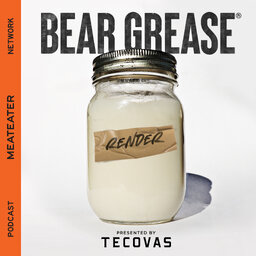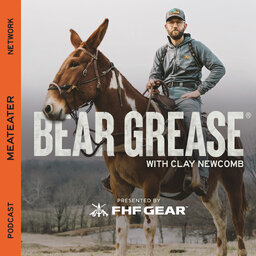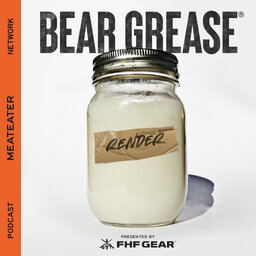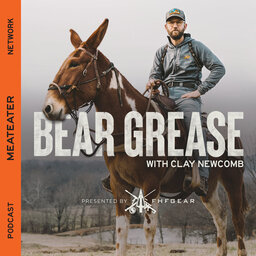Ep. 178: The Donnie Baker Story - Nightmare (Part 1)
On this episode, Clay Newcomb interviews Donnie Baker of Dixon, Missouri who was convicted of illegally killing a 204 4/8-inch white-tailed buck on the Fort Leonard Wood Military base in 2009. Donnie opens up about the details of the kill, how he falsified its location, and the unbelievable attention the buck received within the community. He then tells how he was arrested and interrogated by the Missouri Department of Conservation. This episode is a roller coaster that will make you think about how you cast judgment or mercy on people. Clay later interviews Dr. Misty Newcomb to discuss how, as a society, we choose whom to forgive and whom we not to forgive. Also don't forget, "Meateater's American History: The Long Hunters (1761-1775)" is now available for purchase!
Connect with Clay and MeatEater
Clay on Instagram
MeatEater on Instagram, Facebook, Twitter, and Youtube
Shop Bear Grease Merch
In 1 playlist(s)
Bear Grease
Home to the Bear Grease podcast and Bear Grease Render show with Clay Newcomb, and This Country Life…Social links
Follow podcast
Recent clips

Ep. 413: Render - Boots, Bucks, and Willard the Mule
1:06:31

Ep. 410: Ty Evans - Transformative Mulemanship and Free Agency
51:16

Ep. 408: Render - Real Talk About Men's Health
1:21:04
 Bear Grease
Bear Grease